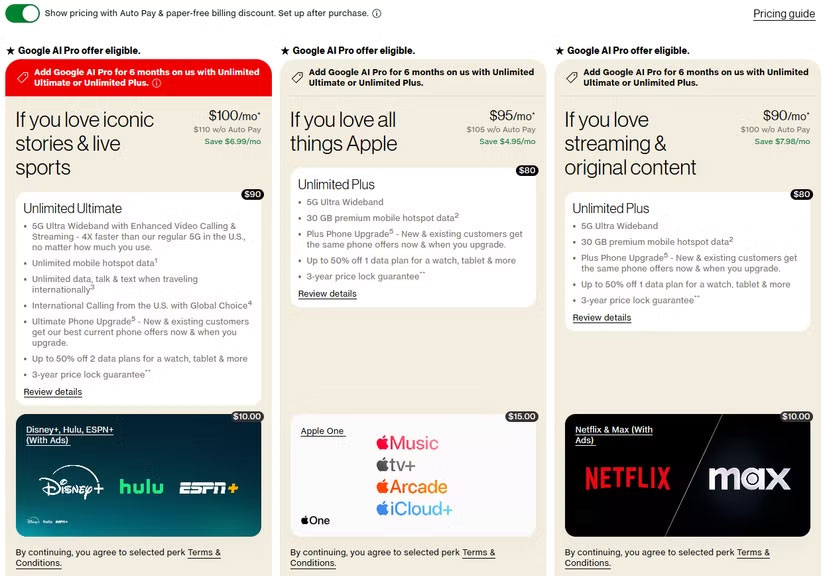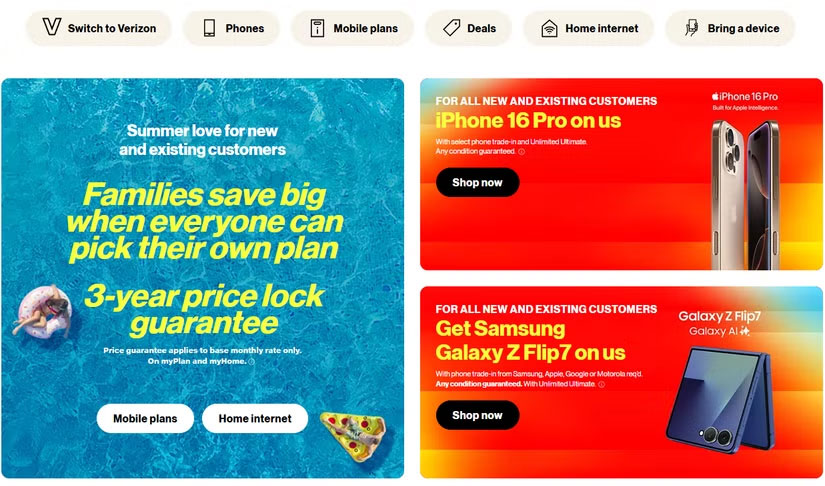Don't Let These 5 Tech Terms Fool You: They're Just Marketing Slurs!
We all know marketing is often misleading, but you may not realize how many common tech terms are unclear or even untrue. Pay attention to these terms because they are not what they seem!
5. "Military grade"
'Military-grade protection' is a term often used by manufacturers of phone cases and similar protective devices to imply that their products can withstand combat conditions. You may also hear VPNs or secure messaging apps use 'military-grade encryption' to protect your data.

In reality, this phrase is meaningless for a couple of reasons. First, there is no universal standard for 'military grade.' Any company can claim this because there is no objective test like there is for a device's water resistance.
Second, the notion that 'military grade' means the absolute highest quality is also inaccurate. The military isn't typically looking for the best that money can buy. They're looking for equipment that's durable, easy to use, and affordable for a large group of people. In that sense, a 'military grade' phone case is reliable but not particularly impressive—not necessarily bad, but not what marketers are aiming for.
4. "Waterproof"
Since liquid is one of the most common causes of device damage, getting a waterproof phone or smartwatch might seem like a good idea. And while the term isn't entirely wrong, it comes with an important caveat: nothing is truly 'waterproof.' Under the right circumstances, water will get into any device.
A more precise term is 'water-resistant'. In short, there is a standard test called IP (International Protection), which indicates how dust- and water-resistant a device is. The second digit indicates how water-resistant the device is, ranging from a low of 0 (no water resistance) to a high of 9 (protected against hot, high-pressure water jets).
3. "Lifetime" License
Buying a one-time license for an application sounds great, especially in the age of ongoing subscriptions. Every company wants ongoing revenue to support growth, so if every customer only paid once for life, the company would go bankrupt. This is why you often see 'lifetime' offers from startups that don't realize how poor value this is for them.
So it's smart to understand the true value of "lifetime" subscriptions. The most important factor: "Lifetime" belongs to the software, not to you. The owner can decide to close the application at any time, rendering your license worthless. Other "lifetime" subscriptions explicitly state that they only last for a certain amount of time, or that you have to renew them every few years.

Some people got lifetime licenses for Malwarebytes about 10 years ago, and they're still valid. But that's the exception and not something you should expect. You're better off trying the free trial or signing up for a month to see if you like the service, then paying annually for the discount.
2. "Unlimited" package
These plans are similar to the above: 'Unlimited' mobile data or cloud storage sounds great, but there are almost always limits in the terms.
Most unlimited phone plans give you a 5G data budget, then significantly throttle your speeds once you exceed that limit. For example, people on T-Mobile's lowest Unlimited plan (Essentials) "may notice slower speeds than other customers and additional throttling" if they use more than 50GB of data in a month.
You're also limited to 480p video streaming in most cases, so you don't even get to choose how you use your "unlimited" data. Verizon's "unlimited" plans don't include unlimited hotspot data unless you pay for the highest plan—which means you'll have to limit your hotspot usage.

1. 'Free' devices from mobile carriers
Major wireless carriers constantly advertise that if you sign up for one of their plans, they'll give you a "free" phone. And while you technically get the device for free, the associated costs mean you'll end up paying more (and being locked into the carrier's service).
These 'super deals' typically reimburse the cost of the phone as bill credit over a 24 or 36 month period. Each month, you'll see a charge for the phone and an equal refund on your bill, potentially making the phone free for the duration of your use.
What's less obvious, however, is that you need to sign up for one of the most expensive plans to get the "free" phone. For example, Verizon's homepage advertises a "free iPhone 16 Pro," with a clear note that this only applies to the 128GB model, you have to sign up for the top-tier Unlimited Ultimate plan (which costs at least $90/month before taxes and fees), and trade in a phone from certain manufacturers.

Plus, the company is free to raise fees or service costs during this time, so you'll be stuck for years if the carrier wants you to pay more. And if you decide to switch carriers, you'll have to pay off the phone and lose any remaining balance from the "free" device.